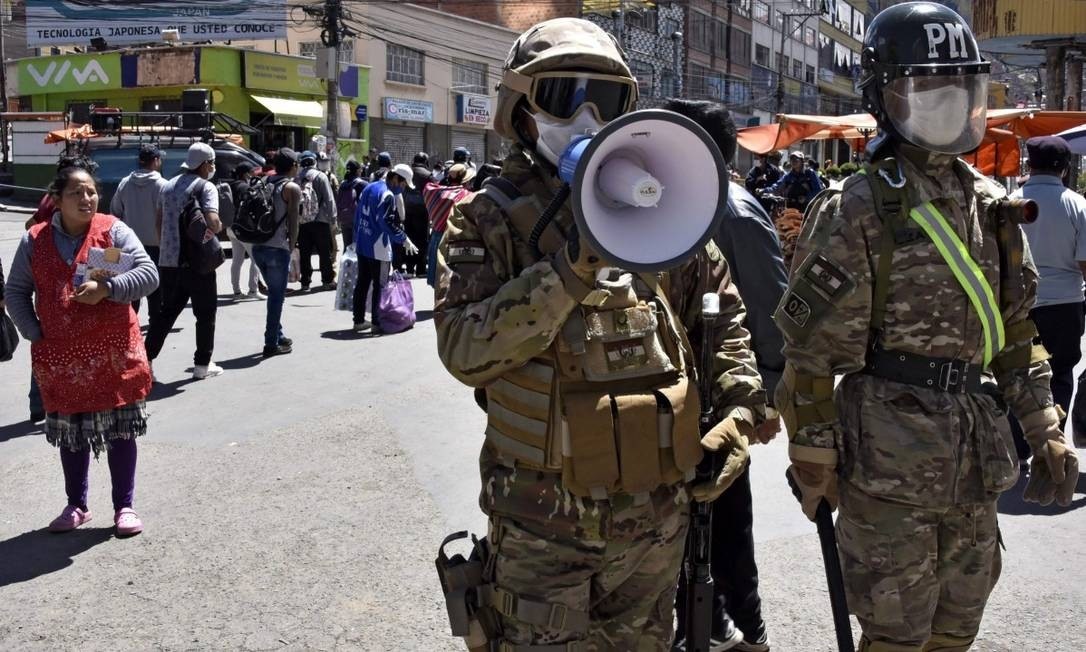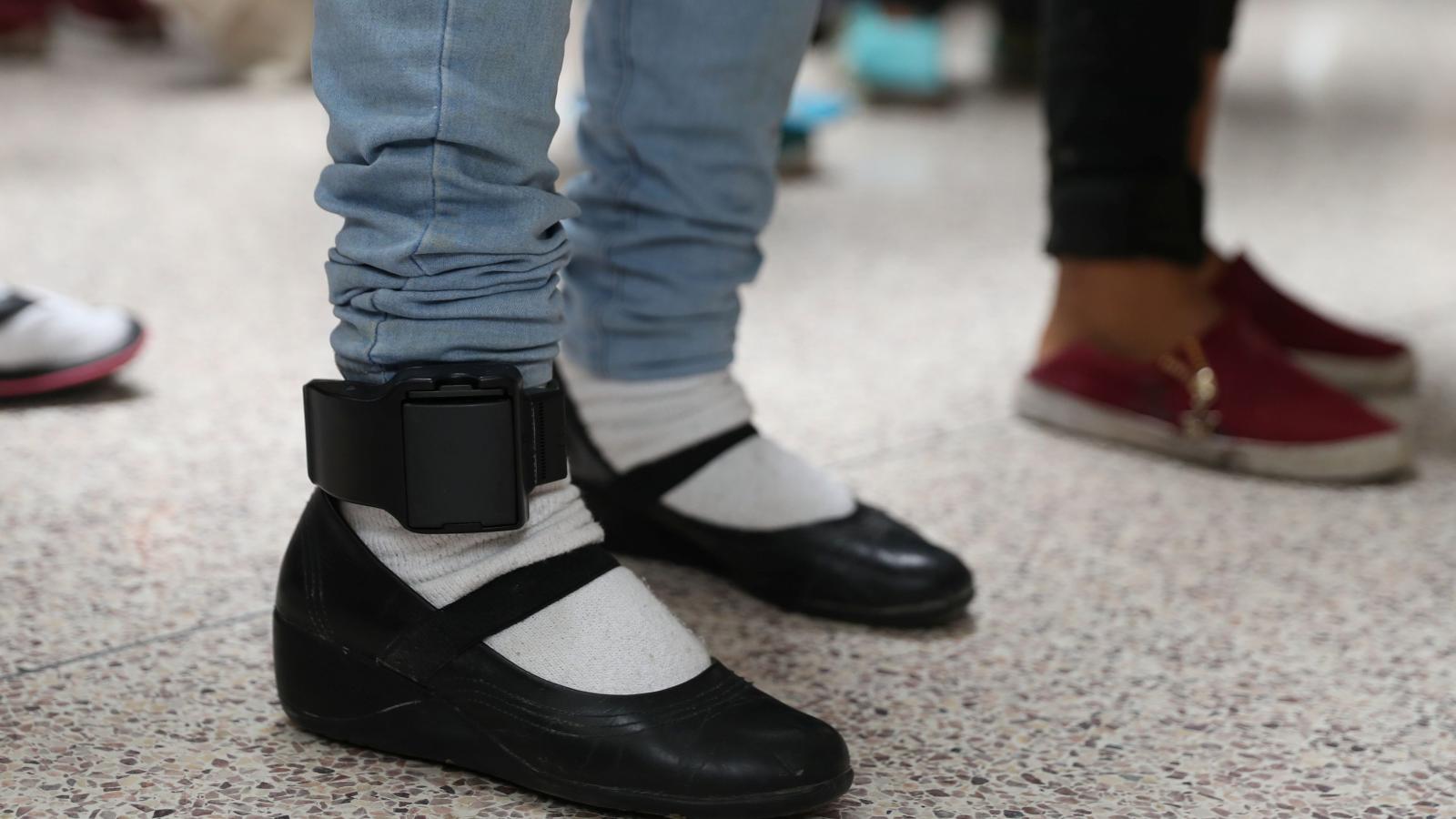RIO DE JANEIRO, BRAZIL – To control the full curfew enforced by the Bolivian government, the military has been deployed in the city of Santa Cruz since Tuesday this week.

Government officials are justifying the militarization by claiming that citizens are not complying with the measures ordered to contain the spread of the virus. The most populous city in the country currently accounts for the highest number of cases of people infected with the coronavirus.
Since midnight on Tuesday, the district borders of the city of Santa Cruz have been completely blocked. Only people with a special permit are allowed to travel by motor vehicle. Violators will be punished with up to three years in prison.
To ensure food supplies, a number of transport passages will remain open. Citizens will continue to be allowed to leave their homes on certain days to carry out essential activities, in accordance with their ID number.
The compliance with the conditions is controlled by the police and the military and is done in close coordination with the central government in La Paz. The military is therefore allowed to carry out checks on people and vehicles, and supports the local police in monitoring urban areas with a particularly high risk of infection.
This applies in particular to the eight wholesale markets, which are still open to supply the population.
The decision to deploy the military was taken jointly by the national and regional governments. The “Plan for a Safe City” was required because the directives to date had not been fully complied with. On behalf of the government officials’ justification, the Minister of Development Wilfredo Rojas said: “We are at war against an invisible enemy, and therefore there is no discussion, citizens simply must obey in times of war”.
On Wednesday, the local and regional government officials of the department of Oruro decided to militarize the whole region after the number of infected people suddenly doubled overnight. The military has been given powers similar to those in Santa Cruz.
Earlier, the local health authority expressed its concern that citizens were not complying with the restrictions and that people infected or suspected of being infected were handling the situation irresponsibly. This “can get completely out of control,” said Henry Tapia, director of the Oruro regional health department.
However, the military presence in the streets has been part of everyday life in the South American country for more than three weeks. Military units have been deployed since the national government declared a health emergency on March 22nd. At a press conference in La Paz on April 11th, the Commander in Chief of the Armed Forces, Carlos Orellana, declared that his units had arrested almost 10,000 people and seized nearly 6,000 vehicles. A total of 47,698 members of the armed forces have been deployed.
Meanwhile, in La Paz, other types of surveillance measures were approved. Last week, the government’s Emergency Committee approved the introduction of electronic anklets to monitor the curfew for those infected or suspected of being infected.

The 500 devices, which will initially be equipped with a chip for GPS monitoring, will enable the police to record the movement patterns of the individuals concerned. The technology, originally intended for convicts with alternative sentences, could now be used to control mobility in times of coronavirus, according to the interim Minister of Justice, Álvaro Coimbra.
“We know people who have neither the mental capacity nor the maturity to understand that we must remain isolated in quarantine and in case of suspicion and infection,” said Coimbra. Consideration is already being given to introducing the rule, which has so far only applied to La Paz, throughout the country.
According to data from the Ministry of Health last Tuesday, most of the 397 people infected are in the 20-39 age group, followed by those over 60. So far, the latter has accounted for most of the 28 deaths. To date, considerably more men than women have been infected. When introducing the statistics, the Minister of Health, Marcelo Navajas, expressed his confidence: “For the moment we still have the benefit of having all the means to contain the virus, as the number of cases remains low”.
Nevertheless, there are reservations regarding the accuracy of these figures, among others by the World Health Organization, because there is insufficient testing and only a few cases are diagnosed.
Criticism of the de facto government’s actions came from the non-governmental organization Human Rights Watch (HRW), after the government ordered charges to be brought against people in the event of spreading incorrect information.
“The Bolivian government seems to be using the pandemic as an opportunity. This action violates the right to freedom of expression,” said José Miguel Vivanco, head of HRW America. Several members of the government have already threatened to prosecute members of the opposition. In fact, the government continues to take action against opposition members and former allies of ex-president Evo Morales, who is currently in exile in Argentina.
The coca farmers leader Faustino Yucra was arrested last week in Tarabuco, Chuquisaca, and was transferred to the San Pedro prison in La Paz. He is indicted for terrorism, manufacturing explosives and inciting crime. After the presidential elections of October 20th, 2019, together with Evo Morales, he planned protests and the blockade of several cities. Months ago, the government launched an investigation into Morales for terrorism and rioting, leading to the immediate threat of his arrest upon entry into his homeland.
Currently, the Movement for Socialism (MAS) political party is being charged with spreading “false information” about the coronavirus pandemic. In addition, the party called for protests against the government and thereby violating the curfew. MAS has denied this. “These are people who are starving and therefore take to the streets. The MAS does not call for breaking the quarantine,” said Andrónico Rodríguez, MAS member and trade union leader of the coca farmers.
In response to the spread of the virus, the government has extended the health emergency and quarantine for another two weeks, until April 30th. Nevertheless, the self-proclaimed interim president, Jeanine Áñez, announced that in one week’s time she would consult with health experts and scientists on ways to relax restrictions.
At the press conference in La Paz, she also pledged further aid packages for the population, the purchase of essential medical equipment for hospitals, and loans for companies to preserve jobs.

